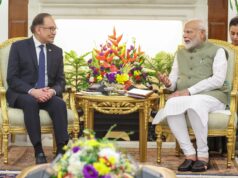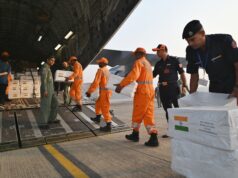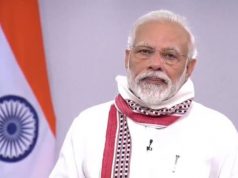

She watches from her bicycle as Sri Lankan soldiers apply finishing touches to her home. “I can finally shift out of my rented home in Jaffna,” smiles the department store clerk in Jaffna. Her house is among four others that Modi will hand over on Saturday, of nearly 50,000 homes the Indian government is building for internally displaced persons.
The first visit by an Indian head of the government to visit Sri Lanka’s northern province has generated a huge buzz among Sri Lanka’s 2.2 million Tamil minority, who have, for the past three decades formed the centerpiece of South Block’s attention.
“There are huge expectations from Prime Minister Modi’s visit. Just like we had when the Indian Peace Keeping Force (IPKF) arrived here in 1987 because we have lost so much that we have nothing more to lose,” says Professor SV Parameswaran, former Dean of the medical faculty in Jaffna university.
Most of an estimated $700 million Indian aid after the end of the 2009 civil war has been directed towards reconstruction efforts in the northern province. Prime Minister Modi will flag off a railway line linking Medawachchiya with Talai Mannar and lay the foundation stone for a cultural centre in Jaffna, the capital of the northern province.
Tamils say they are delighted by the excellent rapport Prime Minister Modi shares with newly elected President Maithiripala Sirisena. “We think we will finally get justice on issues like the 13th amendment and lands still occupied by the Sri Lankan military,” says SP Samy, a businessman who owns a hospital and newspaper in Jaffna.
The 13th amendment promised devolution of police and land powers to the Tamil majority northern area formed part of the Indo-Sri Lankan accord. Its nonimplementation by successive Lankan governments has been one of the biggest stumbling blocks in ties between Delhi and Colombo. The prime minister’s visit could be the start of a new chapter in India’s vexed handling of the Tamil problem.
Jaffna’s house of horrors:
One room in Sri Lanka’s largest Tamil newspaper based in Jaffna is a chilling testimonial to the price a free press has had to pay during its 26-year civil war. The walls of ‘Uthayan’ (rising sun) are festooned with grisly pictures of its journalists who have been shot, tortured and bludgeoned in the line of duty.
A row of shelves stock equipment destroyed when hooligans attacked the office. Bullet marks on the wall of the room from an attack by gunmen are neatly circled and captioned with the precision of a newspaper caption.
The attacks took place because the daily, owned by a Tamil National Alliance (TNA) politician was seen by the government as an LTTE mouthpiece. Prem Ananth, the editor, says the attacks were part of a systematic campaign by the government to undermine a free press. “We gave a voice to the voiceless and hence the government accused us of promoting separatist ideologies.”
Some of the attacks were traced to pro-government paramilitaries, others to unidentified gunmen. In 2006, armed gunmen sprayed bullets into the reception when they did not find the paper’s chief editor; In 2009 a hand grenade was flung into the chief editor’s house and, in 2013, the paper’s printing press was burned to the ground.
“The violence became a part of our daily life,” Ananth smiles. “When we published stories critical of the government, we knew there would be consequences.” The newspaper which sells 40,000 copies had the distinction of not stopping publication for even a day during the bloody civil war. The attacks stopped only after the newspaper’s plight hit global headlines after British PM David Cameron visited in 2013.
-INDIA TODAY










